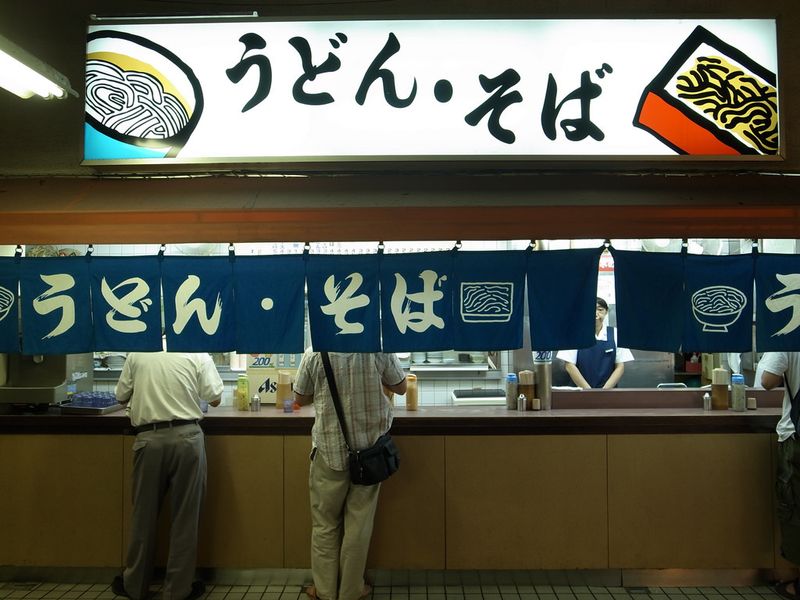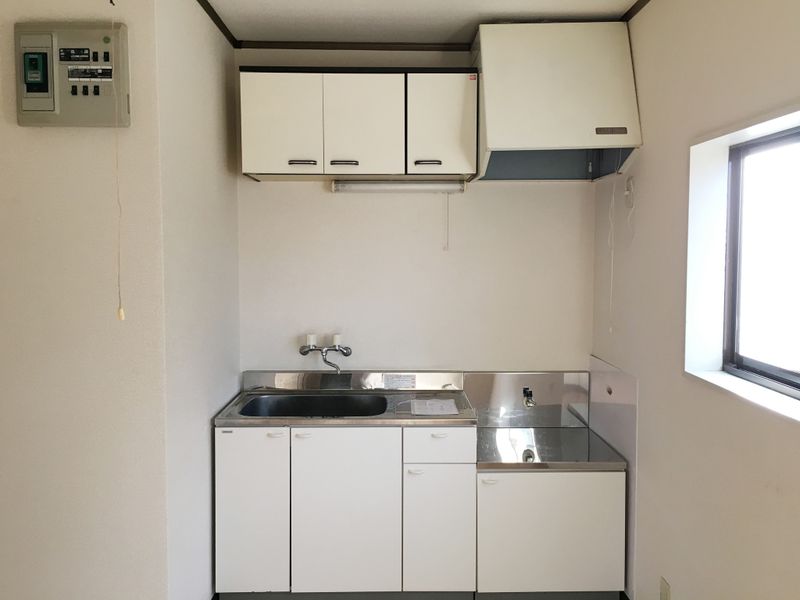Mar 12, 2018
Cooking at home or eating out? Save on money, time, or space in Japan
It perhaps comes as a rude awakening that the cost difference between cooking for oneself and eating out is not abundantly clear in Japan. The myriad of cheap places to eat in Japan, the ease at which they can be accessed, and the smooth and fast nature through which they get bellies filled makes eating out an appealing option for both locals and expats.

The rude awakening part comes when we think that probably one of the most common and clear ways to save money back home, is to do it through food, something which generally amounts to staying at home and cooking. In many countries this serves as a clear and effective way to save money.
The results of a survey conducted by Internet research company Creative Japan, in collaboration with OnShoku Kiko (音食紀行), a project to reproduce historical dishes from around the world, looking at the extent to which people in Japan who live alone cook for themselves (自炊 / jisui) and how they believe doing so affects their ability to save money, were published last month.
The survey gathered data from 516 respondents over two days at the end of January (Jan 29 - 30, 2018) with the primary question being “Do you cook at home?” The results were as follows:
| 56.6% | Yes |
| 23.3% | Sometimes |
| 7.8% | Rarely |
| 12.4% | Not at all |
Going on to look at how this lends itself to saving money, of those who regularly or sometimes cook at home, 89.8% believe that cooking at home enables them to save money, the remaining believe that eating out would be more of a money saver.
Of those who rarely or never cook at home, 35.1% believe that cooking at home would save them money, the remaining believe that by not cooking at home they save money.
What is this belief that eating out is a better way to save money in Japan, and should this be seen as the main reason for people to do so?
For the solo eater it might cost around 300 - 400 yen to rustle up a “Japanese” curry which will provide around three servings. A basic pasta dish, made from a cheap sauce, could provide a couple of servings for around 300 yen.
It’s going to be hard to eat out for the same kind of prices, even in Japan, unless you’re eating cheap gyudon or ramen everyday.
This expat is surrounded by colleagues who eat out for lunch daily. I join them on occasion and typically pay anywhere between 800 - 1,200 yen to get fed. That would be 4,000 - 6,000 yen a week. Over the course of a year maybe around 200,000 - 300,000 yen. For the expat living in Japan, this is a flight back home (wherever in the world that may be) plus spending money (loads of it in some cases).
By contrast a bit of defrosted rice, the leftovers from last night’s dinner, and a couple of frozen bits from the supermarket probably amounts to a lunch costing somewhere in the region of 200 - 300 yen, if that.
Actually then, maybe it’s a bit of a myth that cooking at home in Japan doesn’t save money, at least in the sense that it clearly can. It’s just that the savings are nothing when compared to doing the same in other countries.
But perhaps the fuzzy boundary between the cost of cooking at home and not cooking at home here in Japan isn’t just about saving money -- it’s about saving on space and time, or falling inline with the space / time demands in Japan which might be said to differ considerably from other nations.
This expat went home recently and, as is always the case on these trips, was bowled over by just how large the supermarket trolleys / carts are. Even the “small” ones dwarf anything that is on offer at a supermarket in Japan.
In Japan, unless you’re shopping in packs, there simply isn’t the trolley space to pack in anything more than a few day’s worth of food supplies. And given that many people live in tight urban areas, trips to the supermarket are often done on foot or by train.
Also, given that supermarket workers in Japan tend to painstakingly take items out of one basket and carefully place them in another as they scan them, the prospect of them doing this with the kind of Biblical quantities handled back home is probably more than anyone could bare!
"And what about the expat who may only be in-country for a year or two? It’s often the case that our fridges amount to little more than a plug-in cooking box for the booze."
Then there is the question of where all these supplies would go? OK, maybe the well dug-in family in Japan has the fridge space to handle it all but how about the freezer space? And what about the expat who may only be in-country for a year or two? It’s often the case that our fridges amount to little more than a plug-in cooking box for the booze.
No, it’s likely that cooking at home here in Japan will mean frequent “top up” visits to the supermarket, typically after work. And who wants to do that?
Such frequent visits also subject shoppers to the temptations of snacks, sweets, desserts and other items that were not what we went in for in the first place!
Staying on the theme of “space,” as well as a lack of storage space, many homes / apartments in Japan also have a lack of preparation space. It’s not unusual for those living solo in Japan to have but one ring on their gas burning stove and little or no space at all for the chopping board. Under such Spartan circumstances, cooking in bulk can be a logistical bore!

In the case of “time,” which perhaps corresponds to energy / motivation, those who are in employment and are in the office until after 9 pm and then possibly faced with a commute home of over an hour, eating out probably sells itself, especially if they are the ones faced with cooking at home. And the same for preparing lunch for the next day.
Even with families, if it’s just one of the parents working, reheating some leftovers to be eaten after everyone else has gone to bed might not appeal to all. Not so much a “time” issue, as a “quality of time” and “time difference” issue, perhaps.
"For those going it solo, eating at home probably means doing so squatted on the floor in front of the TV in a space shared with drying laundry."
Following a similar suit, there may be a case to make for the quality of one’s eating environment in Japan. For those going it solo, eating at home probably means doing so squatted on the floor in front of the TV in a space shared with drying laundry. Eating at a table on comfortable chairs maybe an experience only afforded by visiting a restaurant.
Even in the family home in Japan space on some tatami may have to be etched out among toys, school bags, hobby kit, and that same laundry.
The debate about cooking for oneself or eating out then is a multifaceted one. Ultimately, it looks to be cheaper to stay in and cook in long run, when you’ve got all the gear. Whether or not the expat will be in Japan long enough to make any required investment in this sort of thing start paying out is another matter. And while cooking at home in Japan may be easier on the wallet, questions will continue to remain for many that it is time well spent.
What is clear is that saving money in Japan is going to require more weapons in the arsenal that just cooking at home.
Which do you think is cheaper in Japan, cooking at home or going out to eat? Let us know in the comments.
See us on ...
Twitter and Facebook: @citycostjapan
Images:
Middle: Masaki Shiina Flickr License



2 Comments
genkidesu
on Mar 12
For us it's definitely still cheaper to eat at home, but we've had to do so with some modifications! We have no oven...just the ubiquitous fish grill, two burners, and minimal bench space. We love our slow cooker, and that gets quite the workout. That's one of the little gripes that gets to me living here...sometimes I just want a bigger kitchen that has plenty of space, plenty of storage, and an oven!
KamaT
on Mar 13
Our Sunday night ritual has become making dinners for the next few days to put in the fridge so we can just heat them up after work. We also do a batch of rice to wrap and freeze for the bentos during the week. Not exactly the rock n roll life I had imagined for myself but needs must! I do think it saves us a bit of money.